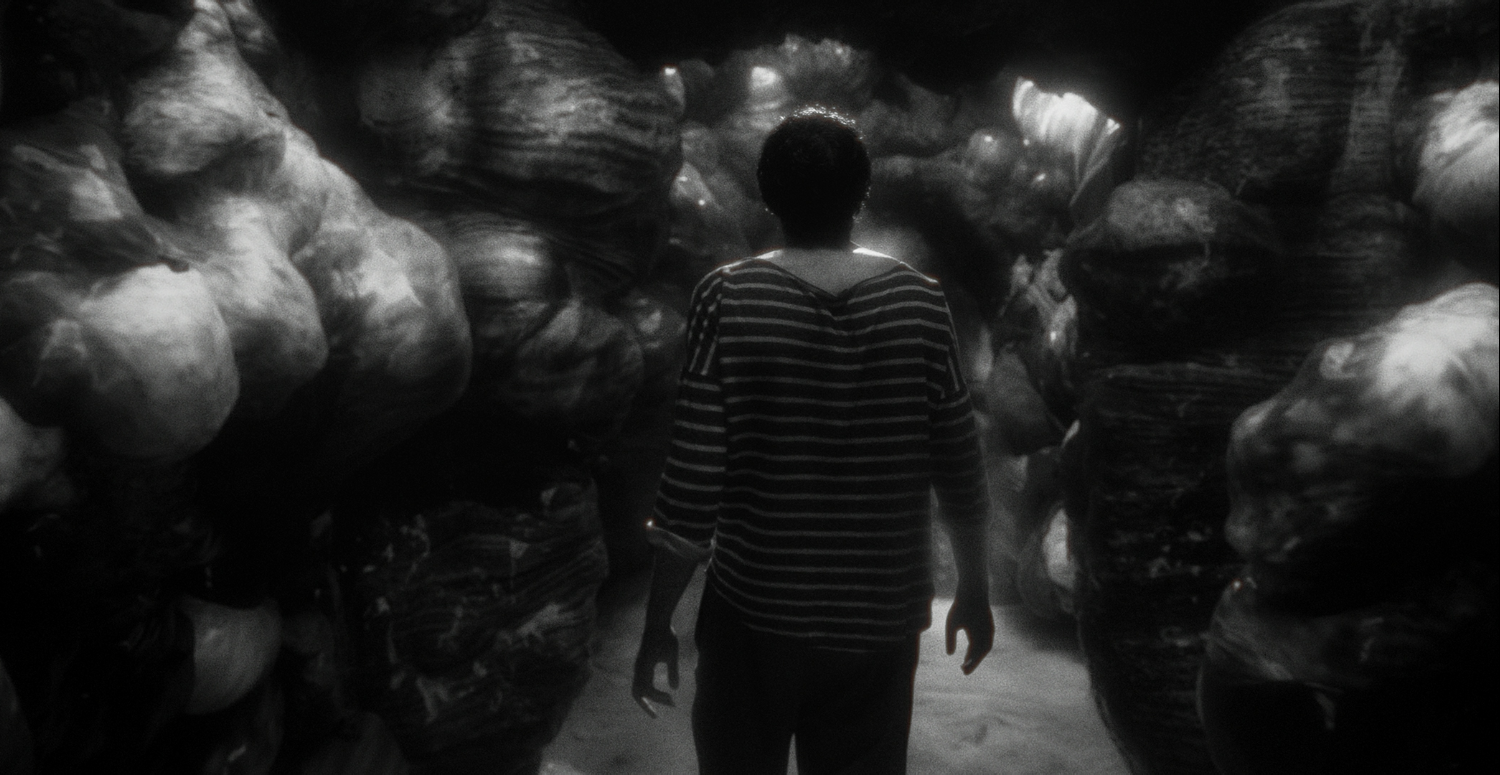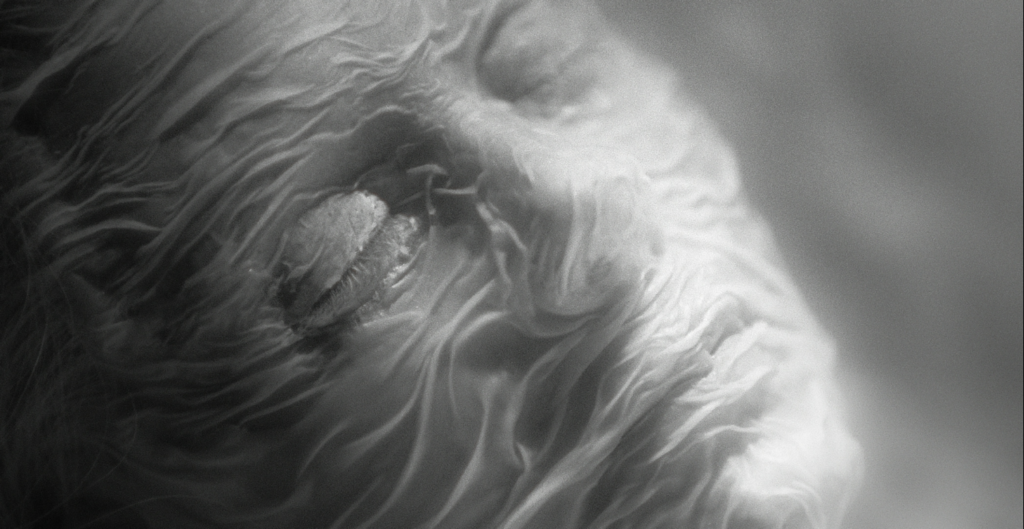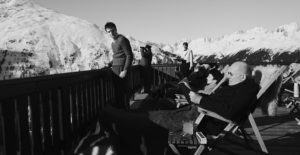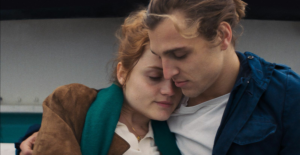Else
2025

FR EN
Et si le monde que nous connaissons se transformait inéluctablement en autre chose ? C’est ce qui se produit dans « Else », où une mystérieuse “pandémie” appelée métamorphisme fait lentement fusionner tous les objets, toutes les matières et tous les êtres vivants. Anx se retrouve ainsi cloîtré, confiné, puis quasiment emmuré dans son appartement, en compagnie de son amante Cass, et tous deux tentent non sans peine d’échapper à cette “maladie” particulièrement envahissante.
Film à la croisée entre le fantastique, la science-fiction, l’épouvante et l’apocalypse, « Else » repose avant tout sur un concept fort et innovant qui suscite autant la curiosité qu’une profonde angoisse existentielle. Le métamorphisme tel qu’il est imaginé par les scénaristes Alice Butaud et Thibault Emin (aussi réalisateur du film) fait en effet croître notre peur d’un inconnu de plus en plus palpable : celui d’un univers transmuté, entièrement nouveau, où la vie n’a absolument plus la même forme.
D’où un travail précis et méticuleux sur le son et l’image. Visuellement, « Else » passe fluidement d’un cosmos à un autre : incroyablement colorée au début du film, la photographie bascule finement vers un noir et blanc granuleux, puis dans un monochrome liminal, avant de se clore par une succession de plans presque hallucinatoires. Les grondements, bruits et musiques de fond complètent alors effroyablement ces atmosphères déjà perturbantes.
L’intrigue aborde fatalement notre rapport à la mort et au deuil, mais aussi plus globalement à l’existence même de nos perceptions et de nos sensations, ce qui nous emporte inexorablement dans un abyme d’interrogations sans fond. L’on peut néanmoins aussi y trouver une forme de poésie où finalement tout (nos sentiments, nos corps, nos barrières, nos talismans) finit par ne faire qu’un, à constituer un immense amas de vie.
Sensoriellement et métaphysiquement très troublant, donc, « Else » pâtit toutefois de dialogues assez pauvres (sinon désincarnés dans tous les sens du terme) et de voix parfois problématiques, de sorte qu’on peut presque décrocher de cette remarquable ambiance. Mais hormis ce bémol, le film demeure à couper le souffle.
Axel Chevalier
What if the world we know was inevitably transformed into something else? This is what happens in “Else”, where a mysterious ‘pandemic’ called metamorphism slowly merges all objects, materials and living beings. Anx finds himself cloistered, confined and then practically walled up in his apartment, along with his lover Cass, as they struggle to survive this particularly invasive ‘disease’.
This is a film at the crossroads of fantasy, science fiction, horror and apocalypse, with a strong, innovative concept that raises both curiosity and profound existential angst. The metamorphism imagined by screenwriters Alice Butaud and Thibault Emin (who also directed the film) increases our fear of an increasingly palpable unknown: that of a transmuted, entirely new universe, where life no longer has the same form.
Hence the precise, meticulous work on sound and image. Visually, “Else” moves fluidly from one cosmos to another: incredibly colorful at the start of the film, the photography shifts smoothly to grainy black and white, then to a liminal monochrome, before closing with a succession of almost hallucinatory shots. Rumblings, noises and background music then frighteningly complete these already disturbing atmospheres.
The plot inevitably deals with our relationship to death and bereavement, but also more generally with the very existence of our perceptions and sensations, leading us relentlessly into an abyss of bottomless questioning. But there’s also a kind of poetry here, where everything (our feelings, our bodies, our barriers, our talismans) ends up as one, a giant mass of life.
So “Else” is sensorially and metaphysically very disturbing, but it suffers from rather poor dialogue (if not disembodied in every sense of the word) and occasionally uneasy voices, so that you can almost lose interest in this remarkable atmosphere. But apart from this minor shortcoming, the film remains truly breathtaking.
Axel Chevalier


